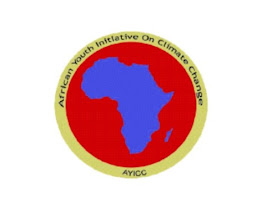African Rio+20: A Paradigm Shift
Note: Here are the profiles of some of the youth delegates and their projects
If there is ever an effective form of profound change, then it must be paradigm shift. This was the thrust of the just concluded African Rio+20 Summit, which commenced on 11th June 2012 and ended on 14th June 2012. Under the theme, Rauka! Act now for a Sustainable Future, the conference provided a unique platform for young leaders from eight countries to meet and take stock of the current state of their countries’ development status and formulate a way forward, with regards to sustainable development.
For many years, the voice that has usually spoken on African issues has always been the victim’s voice, but not at the African Rio+20 Summit. The aura at the summit was that of a fresh start; a new way of looking at issues in the African context with a view of coming up with viable solutions instead of indulging in the blaming game, and renewed optimism by the young leaders in attendance. Various development stakeholders engaged with the young leaders, and they were truly awed by the change that had already been effected by these young pace setters. This was no ordinary talk shop; rather, it was a platform for charting the path to the future we want, and this journey has earnestly begun!
 |
| One of the petition T-shirts |
 |
| Participants keenly following discussions |
 |
| Panelists answering questions from participants |
The main topics revolved around the role of youth in crafting a Green Economy through the creation of green jobs. It was not all about fancy words; rather, it was about practical solutions that the youth leaders had to undertake in order to achieve the envisaged objective. For example, Patricia from Uganda has a briquette-making business that turns waste into energy. Anna from Tanzania has come up with a novel way of purifying water for domestic use by using ash from Acacia branches – this method purifies the water by more than 90%. Kika from Uganda runs a waste-management and recycling enterprise in Kampala that employs 8 youth. David from Kenya has been successful in engaging government agencies such as the Ministry of Environment and the Ministry of Youth Affairs in bringing on board young people in policy formulation and implementation – during the summit, he got a guarantee from a senior Ministry of Environment official that from now henceforth, young people will have a seat on the table of policy formulation and implementation in all relevant aspects. This is just but a sample of the cadre of the youth leaders that participated in this summit.
 |
| The Rauka Campaign was held in partnership with Rio+YOU |
Generic responses and statements were a no-no in this summit, as the participants explored challenges facing their societies and the appropriate responses in an empirical manner; this was aimed at coming up with appropriate solutions to pertinent challenges of sustainable development in an African context. And to boot this, each of the delegates made a personal pledge to effect PRACTICAL solutions in the immediate societies.
At the end of the summit, the young leaders came up with an opinion piece (policy statement) which outlines the position of young African leaders and all the stakeholders who were involved in this process (to be shared soon). In addition, Uganda and Tanzania Youth Climate Networks were formed so as to consolidate the voice and effectiveness of young people to effect change in their societies.
Please check out the blog for the African Rio+20 Summit for more information, pictures, and even participant profiles: http://climatecaravan.tumblr.com
Also get social and let’s engage on Facebook and Twitter
UPDATE: Here is the link to the TV feature of the Pan-African Rio+20 Summit on African Journal: http://www.a24media.com/index.php/features-blog/3190-madagascar-rio20
Compiled by: Kennedy Liti Mbeva


Comments
Post a Comment